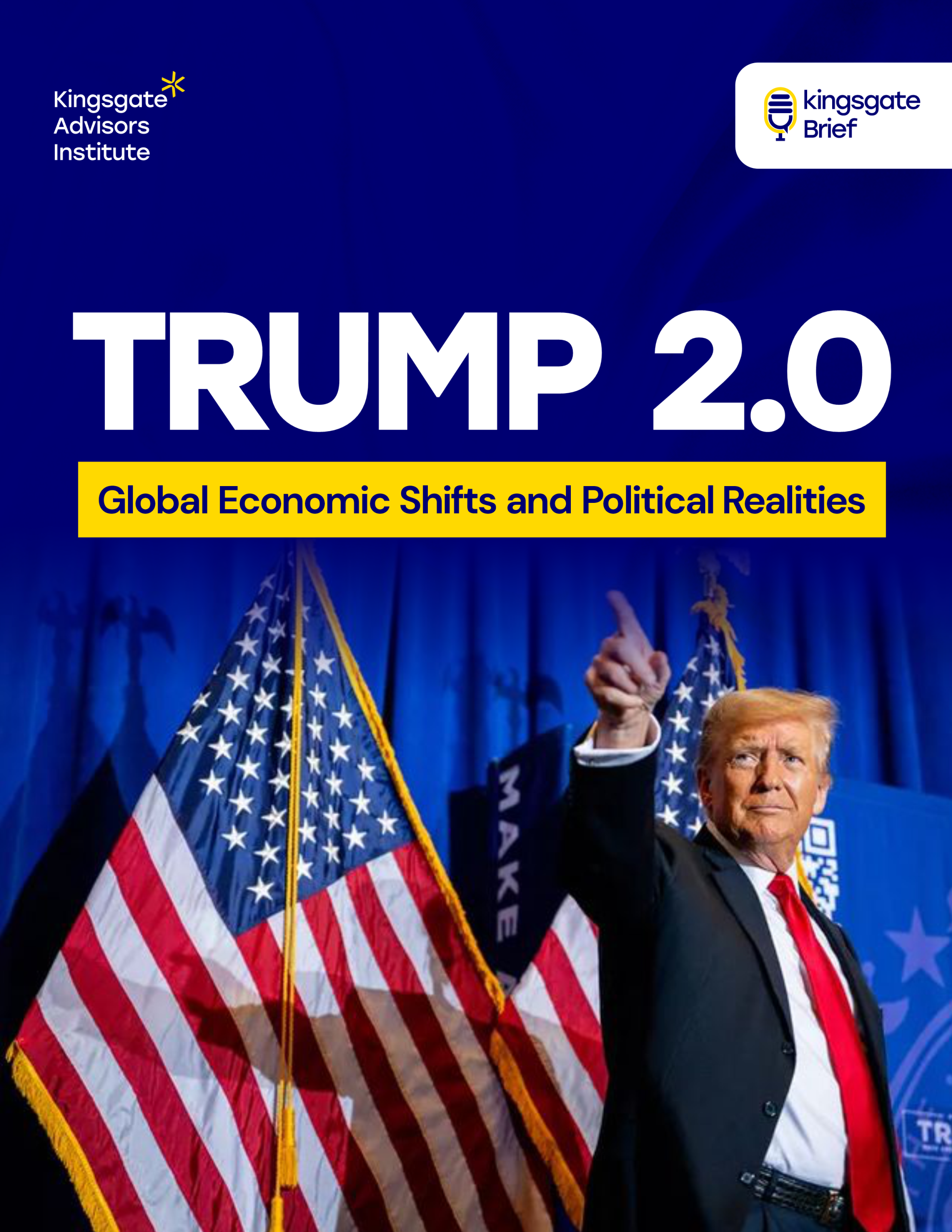
Trump’s use of tariffs changed the way countries think about trade. By imposing taxes on imported goods, especially from China, he disrupted long-standing global trade relationships. This move forced many countries to rethink who they trade with and how much they rely on any single partner.
The Trump administration pushed hard for energy independence, increasing domestic oil and gas production. This didn’t just change U.S. energy policy—it also sent ripple effects through global energy markets, affecting prices and supply chains.
Trump's immigration policies also reshaped the labor market. Tighter rules on visas and refugee programs raised questions about labor supply. These changes also sparked debates about national security and the country’s humanitarian role.
NATO, for instance, came under pressure as the U.S. questioned long-held commitments. The message was clear: the U.S. expected allies to pull more weight or risk losing American support.
In foreign aid, there was a noticeable pivot. Aid became more strategic and this shift changed how the U.S. is viewed as a global partner, especially in Africa and Latin America.

Welcome to Kingsgate Brief.
We are excited to launch Kingsgate Brief, the official podcast series of Kingsgate Advisors Institute .
The first episode, titled “Trump 2.0: Global Economic Shifts and Political Realities,” is now available.
This episode discusses the implications of Trump’s policies and the changing world order in terms of Tariffs , Global trade , Energy shifts, Immigration, Alliances, Foreign aid, particularly from the U.S. and China, National sovereignty and Economic Independence.
Host: Dr. Oluwanbepelumi Olanubi, — Executive Director of Kingsgate Advisors Institute.
Guest: Usman Alabi — Senior Fellow at Kingsgate Advisors Institute.
EPISODE SUMMARY:
The episode discusses the implications of Trumps policies and the changing world order in terms of Tariffs, Global trade, Energy shifts, Immigration, Alliances, Foreign aid, particularly from the U.S. and China, National sovereignty and Economic independence.
(Oluwanbepelumi Olanubi) Hi everyone, good morning, good afternoon, good evening, wherever you are tuning in to join. Welcome to podcast with Kingsgate Institute. This is our very first pod-cast and who are we? Kingsgate is an economic think tank with a mission of creating actionable solutions that are able to help economies, individuals and even communities to unlock their full potential. And one of our programs, one of our flagship programs, is our podcast Kingsgate Brief, where we bring experts and specialists to bring perspectives and insights into some of the burning and structural issues affecting the global economy.
And today, being the first of its kind, the very first episode, we have with us a distinguished expert, a political economy specialist, and he’s here to talk to us about Trump 2.0, the world’s new order after Trump’s new election and the second term as the president. We have seen a lot of things happen in the last few weeks. What does it mean to the global economy? what does it mean to Africa? And also to Nigeria, how do we make sense of all these policies and all these executive orders, how do we position ourselves, are there opportunities for us, or does it only spell doom?
So we are privileged to have with us today Mr. Usman Alabi. He is a passionate crusader for social change and social reforms who believes in the need for destructive methodologies to address the current socioeconomic conditions in Sub-Saharan Africa. He was a senior associate with Red Media Africa for five years, leading the future project governance department, and he briefly worked with the Nigeria Economy Summit Group. Currently Mr. Alabi is a doctoral researcher at the University of Warwick and his research focus is on everyday political economy on counterterrorism and prior to that he had received broad training in global politics and cooperative political economy during his undergrad and his master’s degree at the University of Lagos. Also Mr. Usman Alabi is a Senior Research Fellow with Kingsgate Advisors Institute and his work is in the political economic research cluster and is working on the intersection between political context and decision making as it relates to macro and microeconomic issues.
Alright everyone join me to welcome Mr. Usman Alabi.
[2:40]
(Alabi Usman) Thank you.
(Oluwanbepelumi Olanubi) You’re welcome. We’re glad to have you. Good afternoon.
(Alabi Usman) It’s a pleasure to be here. Thank you.
(Oluwanbepelumi Olanubi) All right. Trump 2.0. A lot has been said, we have seen a lot of perspectives from the economist side. It’s time for us to hear from a political economist. Let’s hear what is really happening. And the first question I’m starting with is America First, the trade policy. Can you make sense of all this to us? What does it mean? because Trump has reinstated his high tariffs on Chinese goods and proposed new trade restrictions. These policies are protectionist measures to reshape U.S. trade with China and other trading partners in a broader sense. So what does this mean, and what global economic and geopolitical consequences might follow these policies? What do we even make of all this?
Alabi Usman: Thank you for the question. So already, the first thing that people would normally think about with the protectionist policy is probably due to the nature of Trump. The stereotype of him being a dealmaker is almost reflective in the way he dealt with China in his first term and the likes of it. But again, there is a geopolitical dimension to it, which a section of the United States is not openly acknowledging at this point in time, which is that there is a tectonic change in the global economic dimension at this point in time.
Trump and his team understand that the moment we have is no longer a moment where the United States holds supreme in global economic affairs. You know, it is a truth that they have acknowledged and told themselves. For example, geopolitically, we understand that the present global arrangement is a liberal global arrangement, which came up after the Second World War, we’ll come to that later. Also, after the Cold War, at the end of the Soviet era, there was what we call the unipolar moment. The unipolar moment was that the liberal idea reigned supreme.
Therefore, the West and its allies had a manifest destiny to impose their economic and political ideas on the world. This led the United States to be so much committed politically, economically, and financially as the global policeman, the global enforcer, the global economic powerhouse in the real sense of it. With it comes the dynamics of globalization. That’s not a subject for today because I used to say that globalization was going to be the logical outcome of liberalism in the real sense of it. But again, it was not allowed to take a natural form; it was sped up along the line. That’s why we are having the crisis that we are having at this point in time.
[6:27]
Before you know it, sometimes around 2000 to 2017, we started seeing the growth of the Asians, particularly the Chinese. Their silent growth looks as if they do not form a threat, but this is an economy that is massive. They not only have labor, but they also have capital, and as we can see in recent times, they have technical know-how. You know they are becoming the manufacturing power of the world. Most of the things we use are being produced in China; they can outproduce any country. So this is the reality of the world now. The United States policymakers can no longer say, in the real sense of it, that we are still in a unipolar moment. You know, the Biden White House tried as much as possible to continue to think that way, but deep down they understood that it is difficult to keep having that manifest destiny upon themselves, continuously influencing global trade and the likes of it.
Guest

Executive Director - Kingsgate Advisors Institute

Senior Fellow - Kingsgate Advisors Institute
Address:
54B, Adeniyi Jones Avenue, Ikeja, Lagos, Nigeria.
Contact:
+2347033052120
info@kingsgateinstitute.org
© Kingsgate Advisors Institute. All rights reserved.
Address:
54B, Adeniyi Jones Avenue, Ikeja, Lagos, Nigeria.
Contact:
+2347033052120
info@kingsgateinstitute.org
© Kingsgate Advisors Institute. All rights reserved.